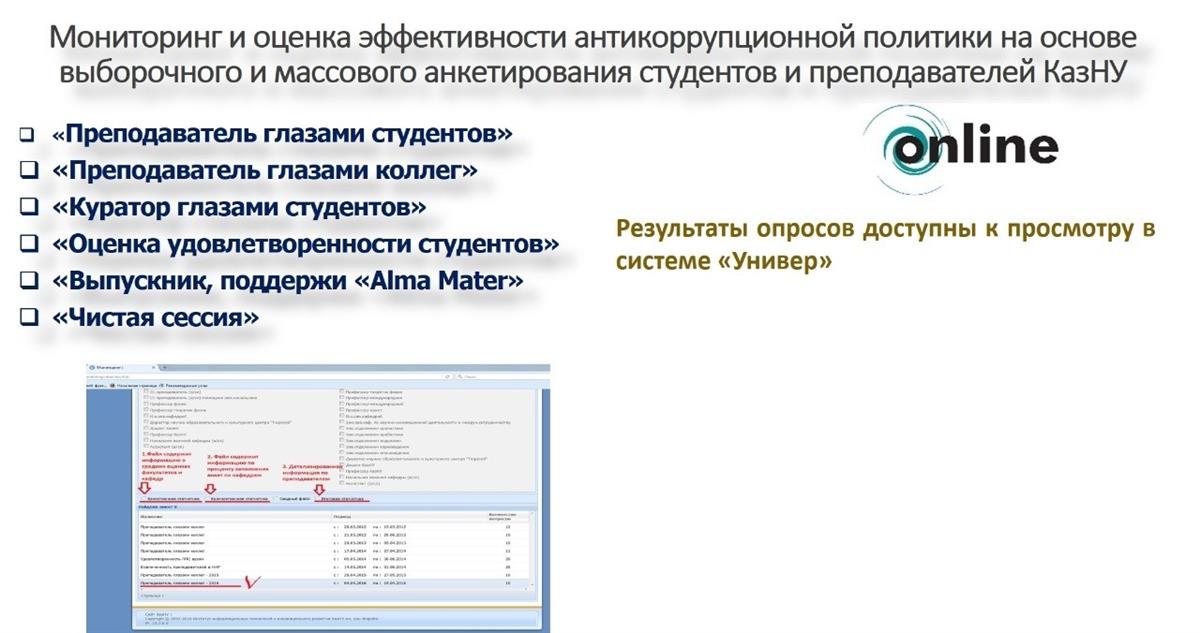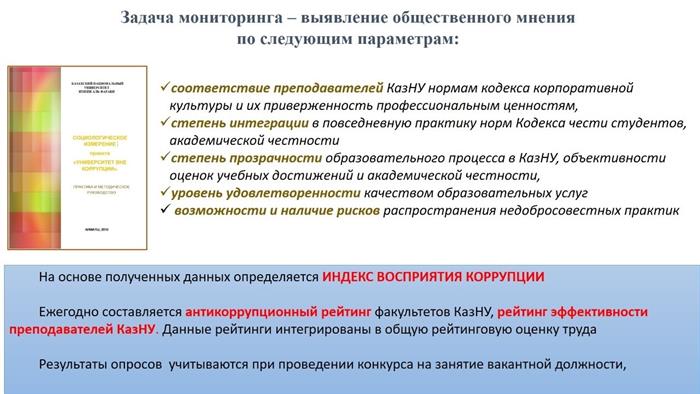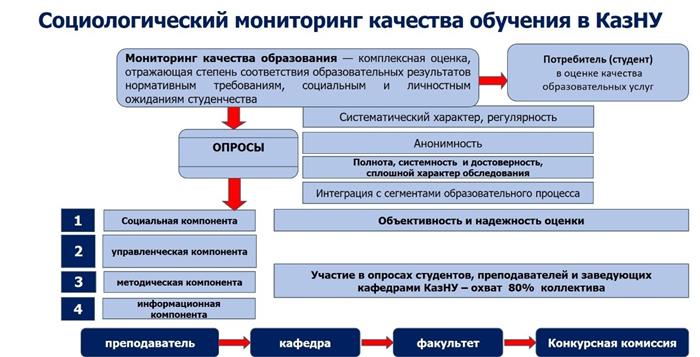Results of Anti-Corruption Monitoring
Views: 4140

The Centre for Sociological Research and Social Engineering of KazNU has conducted surveys to identify public opinion on the effectiveness of the «Corruption-free University» project and topical issues of distance learning, as well as to assess the social attitudes of students and teachers in the context of the pandemic.
In total, the survey covered more than 15 thousand students and teachers of the University. The methodology of sociological monitoring includes a whole series of polls based on mass and sample surveys such as: «Teacher through the Students’ Eyes», «Teacher through the Colleagues’ Eyes», «Student Satisfaction Assessment», «University through the Graduates’ Eyes», «Corruption Perception Index». Together they form a single system for assessing the status and effectiveness of anti-corruption policy in a higher education institution. It is based on the best practices of the Centre for Sociological Research and Social Engineering of Al-Farabi KazNU, which have been developed over the course of seven years as part of the «Corruption-free University» project. The implementation of this project contributed to the introduction of a whole complex of anti-corruption technologies in all spheres of the University’s activity and regular evaluation of its effectiveness.
The tested system of anti-corruption monitoring allows determining the index of corruption perception from the standpoint of students and teachers. It includes the assessment of such important parameters as teachers’ compliance with the norms of the code of corporate culture and adherence to their professional values, the degree of transparency of the educational process, objectivity of assessments of educational achievements and academic honesty, the level of satisfaction with the quality of services provided and the spread of unfair practices in the University environment. In 2020, the University Corruption Perception Index was 9.11 out of 10 (on a scale where zero indicates a high level of corruption and 10 – a low level). Overall, the surveys record a steady positive dynamics in the index – the gap for five years indicates 12.3% in the increase of the share of students who have never faced dishonest practices.
According to the study, 95.7 per cent of the students have not experienced any dishonesty practices at the University, 73% of them condemn any manifestation of it. According to the results of the survey, students highly estimate the activity of more than 85% of teachers. In addition, the Members of the Rector’s Office have also been provided a list of lecturers in all Faculties, whose performance was evaluated by students and colleagues below the average. The assessment of student satisfaction by the Faculty varies from a maximum of 4.56 to 3.88. The survey revealed students’ attitudes toward practices of dishonest academic behavior. Thus, in the study, more than half of those surveyed highlighted that it was not acceptable to use cheat sheets during training. At the same time, 34.8% expressed a loyal attitude to this phenomenon, which indicates the need to strengthen further work on the cultivation of norms and principles of academic honesty in the student community.
In the context of the pandemic, the values of health for students have become more important than usual – more than 60 per cent of students have this indicator, and more than 50 per cent of students experience various life difficulties, from psychological to material, during this period. At the same time, one in three experienced difficulties in accessing the uninterrupted Internet, one in four pointed to the lack of computer equipment at home and, therefore, difficulties in learning new material. Nevertheless, over 75% of students appreciated the experience and new opportunities gained during the period of distance learning.
Traditionally, based on the research results, an anticorruption rating of subdivisions have been presented. This rating is an important component of the annual comprehensive evaluation of the activities of teachers, Departments, and Faculties, implemented as part of results-based management. It is the basis for annual competition to fill the positions of Deans of Faculties, Heads of Departments and all faculty members. Currently, Al-Farabi KazNU is one of the first higher education institutions in the country to begin the procedure of certification of the University’s anti-corruption management system for compliance with ISO 37001:2016.










